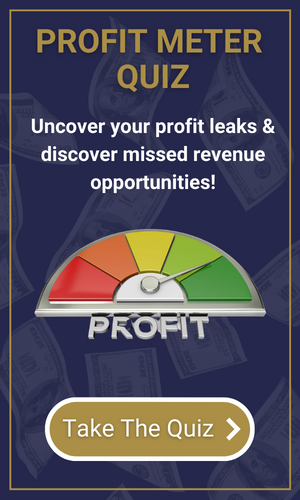In the last article, we talked about the interview process that works like a filter for your business, eliminating the wrong candidates who will only cost you time and money, and raising the best contenders to the top for employee success.
Once you’ve got your next A player employee lined up, you need to set them up for success and that means having a documented system for training, onboarding, and developing them starting from day one.

Without a written system that codifies these things into your business, you will constantly be dealing with employee issues. Things will fall through the cracks, work won’t get done the way you want it to, and you’ll spend more time managing your employees rather than growing your service business and finding new customers.
And the first part of that system is getting the paperwork and taxes in order.
As the employer, you need to keep track of certain pieces of information such as:
- hire dates
- last raise date
- vacation and sick leave amounts
- attendance
- birthdays
- emergency contact information
You will also need your new employee to fill out a W-4 and an I-9 form, preferably on their first day of work. Most states give you a day or two to get these taken care of, so make sure they are part of the “new hire” packet that you give the employee when they first get started.
You will also need to get them lined up with payroll. If you’re not a tax and payroll professional yourself, it’s best to find someone to help you with this. Payroll rules and regulations change regularly so working with an accounting or bookkeeping company to help you take care of this is a good move.
In addition to processing your payroll, they can also assist you with the monthly reporting, and some can also help with your quarterly and annual tax returns, something that will make your life much easier!
Now that you have collected all of this information for your business, how long do you have to keep it?
The records that pertain to income and expenses and any income tax-related items should be kept for a period of 7 years. It’s best to box them and label them by year just in case you need to go back and find something.
The information you have collected about your employees must be kept for 3 years or for 1 year after they have left your employment. The payroll tax returns and W-2’s should be kept for a minimum of 3 years.
SOPs Make The Dream Work
The only thing worse than training your employees and having them leave, is not training them and having them stay.
-Henry Ford
With the legal and tax stuff out of the way, let’s revisit your documentation and systems. New employees need to know what’s expected of them, how the work needs to be done, and the rules of your company. This is where your Policy Manual or Employee Handbook comes into play.
There are multiple benefits to creating an Employee Handbook, not the least of which is that it forces you to document how your business functions on the day-to-day level. It also creates the foundation for your training and onboarding system that allows new employees to excel.
Typically, you should cover the following info:
- business operating hours,
- holidays that the employees will be paid for,
- dress code requirements,
- sick pay and vacation pay,
- absences and tardiness,
- bereavement leave and pay,
- company philosophy,
- smoking policies,
- breaks and lunch periods,
- and much more.
Employees can make or break your business and are often part of the profit leaks in service businesses, so it’s important to invest the time upfront in landing the best candidates for your job opening and then put in the effort to make sure they have everything they need to succeed and thrive in their new role.
If you want to learn about hiring and payroll for your service business, your free consultation call is just one step away. Click on the image below to book your call with us and find out how we can put your business back on the path to profitability.





